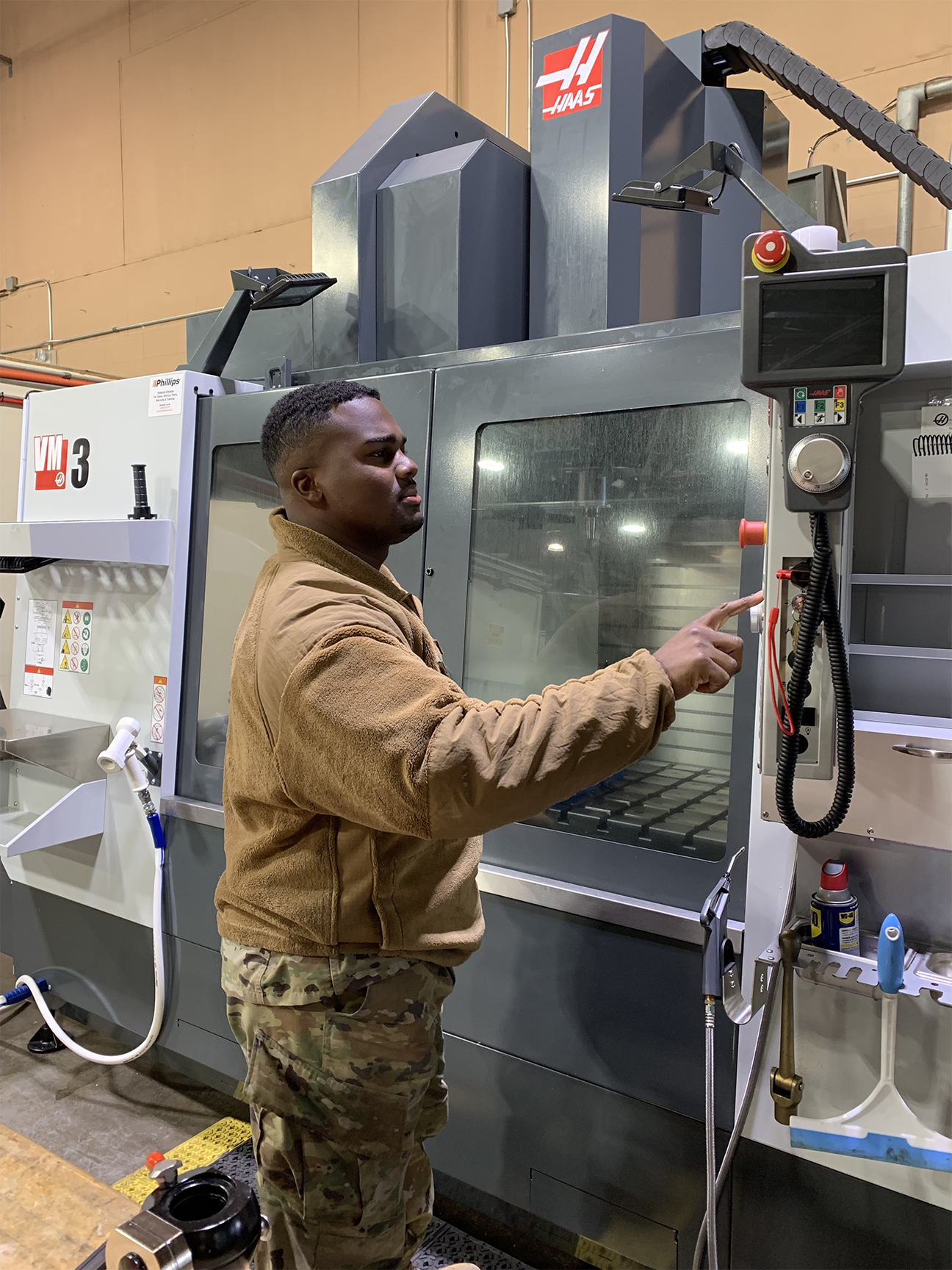AFRL upgrades rocket fabrication capabilities
EDWARDS AIR FORCE BASE, Calif. (AFRL) — The Air Force Research Laboratory upgraded its fabrication shop equipment with 20 new state-of-the-art machines for manufacturing rocket components that will enhance capabilities, increase accuracy and save money.
The Rocket Propulsion Division, part of AFRL’s Aerospace Systems Directorate, recently modernized its fabrication shop with five new computer numerical control, or CNC, milling machines; three CNC lathes; a waterjet cutter; a wire electrical discharge machining, or EDM machine; a sinker EDM machine; a small hole EDM and numerous manually operated machines.
“The recently upgraded machines provide AFRL with an increased capability to fabricate components of higher complexity and provide customers the benefit of being able to keep more of their work on-site, reducing program costs and turnaround time,” said Ben Gleason, lead fabrication technician. “The machines are equipped with similar CNC control units to lessen operator training. More accurate spindles and electronic part probing reduce setup time and increase precision.”
Specifically, the new equipment will increase accuracy on multi-sided and complex parts, while improving operator safety and allowing for a cleaner, safer working environment.
“The unique skills of these devices allow them to machine tight tolerances with exotic materials such as superalloys, additively manufactured metals, polymers and composites,” said Lt. Col. Ammy Cardona, AFRL branch chief and materiel leader for the Experimental Demonstration Branch.
AFRL’s Rocket Propulsion Division designs and manufactures components for liquid rocket engines and solid rocket motors. The newly upgraded fabrication shop allows the laboratory to manufacture unique, one-of-a-kind rocket components that scientists and engineers can test in experiments, such as proof of concepts for new technologies.
“Machine shop personnel take great pride in being an integral part of the scientific endeavors at AFRL,” Cardona said.
The automation of the new machines will also ensure product quality and timeliness, which helps the team make accurate decisions of scheduling and production to meet the demand of AFRL’s test schedule.
“We are extremely responsive to the needs of our customers, and we will go to great lengths to ensure they are getting exactly the parts that they require in an effective and timely manner,” Cardona said.
Automation also creates consistency when engineers create multiple parts of the same kind.
“The new machines support highly precise cuts which eliminates waste and saves money on material and human error in the fabrication process,” Gleason said.
Automation also increases the speed of the entire fabrication process.
“Reducing lead time is critical for our fabrication team. We are able to be more efficient with our time and set up multiple fabrications at once while producing state-of-the-art rocket components,” Gleason said.
About AFRL
The Air Force Research Laboratory, or AFRL is the primary scientific research and development center for the Department of the Air Force. AFRL plays an integral role in leading the discovery, development, and integration of affordable warfighting technologies for our air, space and cyberspace force. With a workforce of more than 11,500 across nine technology areas and 40 other operations across the globe, AFRL provides a diverse portfolio of science and technology ranging from fundamental to advanced research and technology development. For more information, visit www.afresearchlab.com.

Staff Sgt. Kevin Davis, a machinist with the Air Force Research Laboratory’s Aerospace Systems Directorate, operates one of AFRL’s new computer numerical control milling machines in the rocket fabrication shop at Edwards Air Force Base, California, Sept. 15, 2022. AFRL recently upgraded its fabrication capabilities with 20 new state-of-the-art machines for designing and manufacturing components for liquid rocket engines and solid rocket motors. The new equipment will increase accuracy, improve operator safety and save money. (U.S. Air Force photo / Joy Alich)
